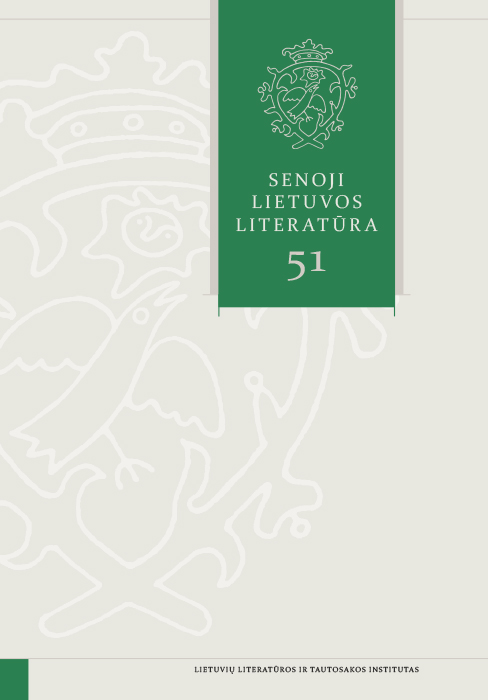The Man of Societies: Marcin Poczobut- Odlanicki’s Communication with Western European Scientists in the Second Half of the Eighteenth Century
Abstract
The research covers scholarly relations of Marcin Poczobut-Odlanicki, the famous astronomer of the Polish–Lithuanian Commonwealth, the head of the Principal School of the Grand Duchy of Lithuania (from 1797 – Vilnius Principal School), and a professor of mathematics and astronomy. Based on the sources stored in the Manuscript Department of the Vilnius University Library – Poczobut’s correspondence with Western European scientists – analysis of academic relations and their development, ways of expression, scientific ideas and their benefits both to the scientist and the environment where his scientific views were formed was carried out. It should be noted that Poczobut’s correspondence is very rich: it consists of several thousand letters to various persons. This article is the first attempt to grasp the importance of such correspondence in several aspects: as a benefit to a particular person (popularisation of his name and his branch of science), to the institution he represents, and even to the glory of the country: after all, Poczobut was not an ordinary scientist but a royal astronomer and the only scientist of the whole Polish-Lithuanian Commonwealth admitted to the ranks of the members of the Paris Academy of Sciences as a corresponding member. In addition, the article considers the dissemination of scientific ideas (interest in the newly discovered constellation, publications on observations in the scientific press (journals, atlases, and encyclopaedias), and the earliest processes of modernization of the academic milieu of Vilnius in the general context of the world of science.
In current Lithuanian and Polish historiography, research into the activities of scientific societies mainly covered the late nineteenth–the early twentieth century, but participation of the research environment of Vilnius University and its predecessors in foreign scientific societies of the earlier period has not been studied. The analysis of the scientific relations and development of science in the academic community of Vilnius shows the importance of the activities of scientific societies and their contribution to science not in the local but in the overall context of the world of science.
